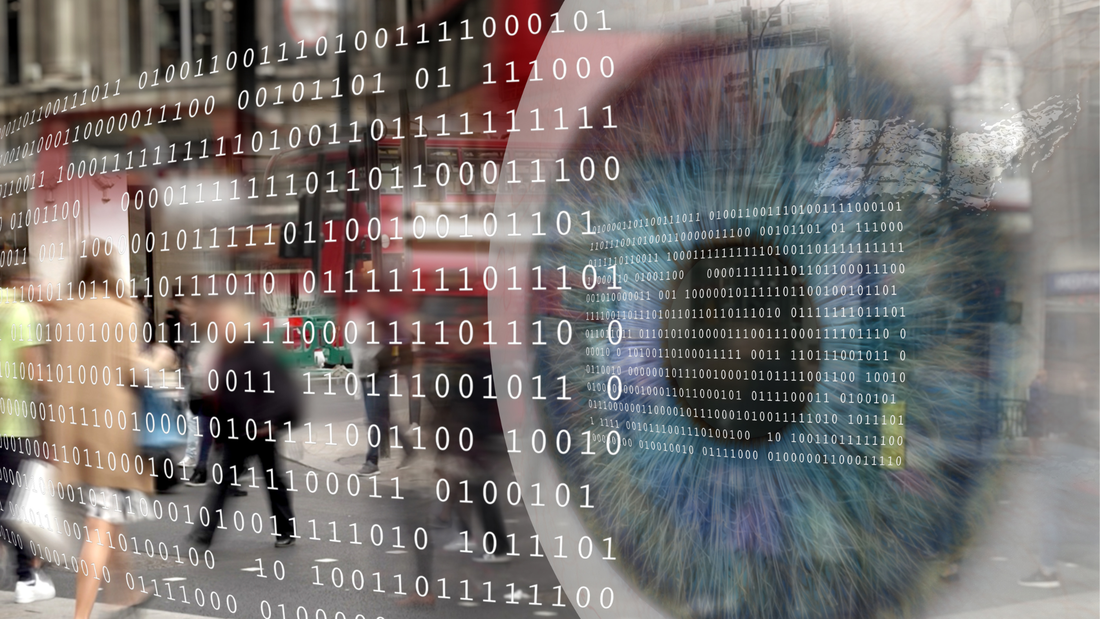|
In his frequent testimonies on the Hill, Department of Justice Inspector General Michael Horowitz is – by the standards of Washington, D.C. – refreshingly frank. In a House hearing last week, Rep. Ben Cline (R-VA) asked Horowitz penetrating questions and received some intriguing answers. (Go to the 2:30 mark.) Cline noted that in the Senate’s recent annual worldwide threats hearing, FBI Director Christopher Wray divulged that the Bureau has in the past bought Americans’ precise geolocation data derived from mobile phone advertising, before backing away from the practice in the face of thorny legal issues.
Cline then asked Horowitz: “Have other parts of the DOJ purchased or are other parts of the DOJ still purchasing this kind of information about Americans?” Horowitz replied, “we’re looking at that, we saw those news stories.” He promised to follow up with answers. “Needless to say,” Cline said that if such surveillance is still occurring, “that would be very disturbing.” Cline then asked: “How did the FBI and potentially other elements of the DOJ come to believe that buying location information about Americans without a warrant would be legal, especially after the Supreme Court’s decision in U.S. v. Carpenter (2018), which held that Americans’ location information is protected by the Fourth Amendment?” “I think it raises precisely the issues you mention,” Horowitz replied. “What I am supposing may have happened is that before Carpenter, of course, the department took advantage at least in some instances of the ambiguity in the law. Post-Carpenter that of course shouldn’t have happened.” Cline then asked if the inspector general knew of other parts of DOJ buying similar sensitive information, such as communications or internet records. Horowitz replied that he is following up on an inquiry from Sen. Ron Wyden (D-OR) about a surveillance program run through the office of the Attorney General of Arizona. This is a reference to an unorthodox surveillance scheme in which a unit of the Department of Homeland Security surveilled wire money transfers of Americans above $500 – some to Mexico, some within the United States. This bulk data was centralized in a non-profit, private-sector organization, which shared it with hundreds of federal, state, and local law enforcement agencies. “These are issues on our radar,” Horowitz said. So in the span of three minutes, the Department of Justice Inspector General unambiguously affirmed that warrantless access by federal agencies of location data would violate a Supreme Court ruling, promised to report on whether agencies are illicitly buying Americans’ location data, as well as to report on the Arizona wire-money transfer surveillance. Rep. Cline concluded his questioning by telling Horowitz that he has “a track record of achieving compliance from agencies that otherwise are reluctant to provide it.” The congressman said he hoped Horowitz would continue to be aggressive, because it “doesn’t seem that the message is getting through.” Civil Libertarians Vow to Reform Section 702The U.S. Supreme Court today declined to hear Wikimedia v. NSA, a lawsuit challenging the mass, secret surveillance of Americans’ online communications.
The ACLU had gone to court to challenge a National Security Agency program under the Foreign Intelligence Surveillance Act (FISA), which the agency uses to continuously monitor international and domestic communications across the internet’s main pathways. “In analog terms, it’s as if government agents were opening the international letters passing through a U.S. post office en masse, reading the contents, and then keeping many of those letters in a file for years,” wrote Bob Goodlatte, PPSA Senior Policy Advisor and former Chairman of the House Judiciary Committee, in a recent op-ed. Goodlatte compared this intrusion by the government into American’s emails, web-browsing content, and search engine queries to the “general warrants” of the colonial era that had helped spark the American Revolution. “Worse, the government asserts that this case cannot even be litigated,” said Gene Schaerr, PPSA general counsel. “Under the government’s interpretation of the ‘state secrets’ doctrine, major surveillance programs of the government can never be litigated. “This denial shows all the more reason why Congress needs to step in and use the pending reauthorization of Section 702 – a principal surveillance authority in FISA – to close loopholes the government is exploiting.” Eight years ago, the U.S. Supreme Court held in Riley v. California that because cellphones hold “the privacies of life” – in the form of texts, images, emails, calls and more – that police (barring extreme circumstances) need a warrant to search it.
The application of a new legal standard, however, is never so simply adopted. Ever since, federal and state courts have applied Riley in contradictory ways. To cite just one example, the Montana Supreme Court recently came down hard on the side of digital privacy. As we reported in February, parolee Bradley Mefford was challenged for leaving his apartment by parole officer Jake Miller. Mefford told his parole officer that he merely went into the parking lot to get reception to engage a Facebook Messenger conversation with his daughter. He gave the officer permission to read his Messenger thread to prove he was communicating with his daughter. The officer took the phone and surveilled all its contents, including images. Beyond Messenger, Miller found evidence of a serious crime. The ACLU vigorously defended Mefford’s cellphone privacy rights. Montana’s high court agreed, vacating the charges stemming from that officer’s sweeping, generalized surveillance. The court found: “It was no more reasonable for Miller to believe he had permission to search Mefford’s photos to corroborate the identify of his daughter than it would have been for him to search through a photo album in Mefford’s bedroom or a rolodex on Mefford’s office desk for information regarding Mefford’s daughter.” Other courts have come down on opposing sides. EFF’s Jennifer Lynch and Allie Schiele offer a sweeping look at recent rulings. They write that “some courts have constrained police searches to certain types of data on the phone, specific time periods, or limited the use of data, other courts have authorized warrants that allow the police to search the entire phone.” In United States v. Morton, the Fifth Circuit sitting en banc overturned a panel opinion that had overturned a broadly executed warrant. The court upheld a “good faith exception” that “evidence should not be suppressed when law enforcement obtained it in good-faith reliance on a warrant.” Dissenting judges wrote: “Searching a cellphone is much more invasive than a self-contained search of a pocket compartment or a bag.” The dissenters also complained that the affidavit was supported by “sweeping generalizations,” a precedent that allows officers to hide behind the good-faith exception – which is “unjust, unfair, and unconstitutional.” In Richardson v. State, the Maryland Court of Appeals found that “the privacy concerns implicated by cellphone storage capacity and the pervasiveness of cellphones in daily life do not fade away when police obtain warrants to search cellphones.” Maryland’s highest court held that there is no “one size fits all” solution for cellphone searches. Some might search within a specific timeframe or confine the search to an app or set of apps, or other restricted search protocols. Ultimately, the Maryland high court found, “a search warrant for a cellphone must be specific enough so that officers will only search for the items that are related to the probable cause that justifies the search in the first place.” EFF’s Lynch and Schiele conclude that Maryland sets the right precedent, writing that courts should “require cellphone warrants that are narrowly tailored to the crime under investigation.” PPSA agrees. We also acknowledge, however, that such restrictions sometimes impose a cost at the expense of justice. In the Mefford case the underlying charges vacated by the Montana court arose from child pornography discovered on the parolee’s phone. In the Maryland case, a search of multiple phones of a high school student who had carried a gun to school showed evidence that he was planning a robbery (though in that case, the court did not vacate the evidence). Painful tradeoffs arise when weighing privacy against policing, sometimes hard to stomach. We must remember, however, that such limits on cellphone searches are needed to prevent the United States from becoming a surveillance state. |
Categories
All
|




 RSS Feed
RSS Feed